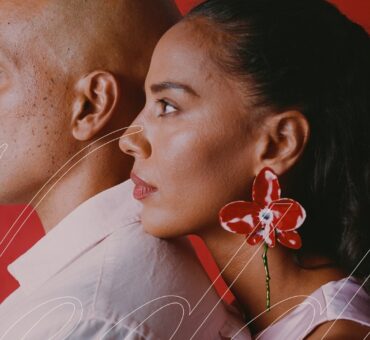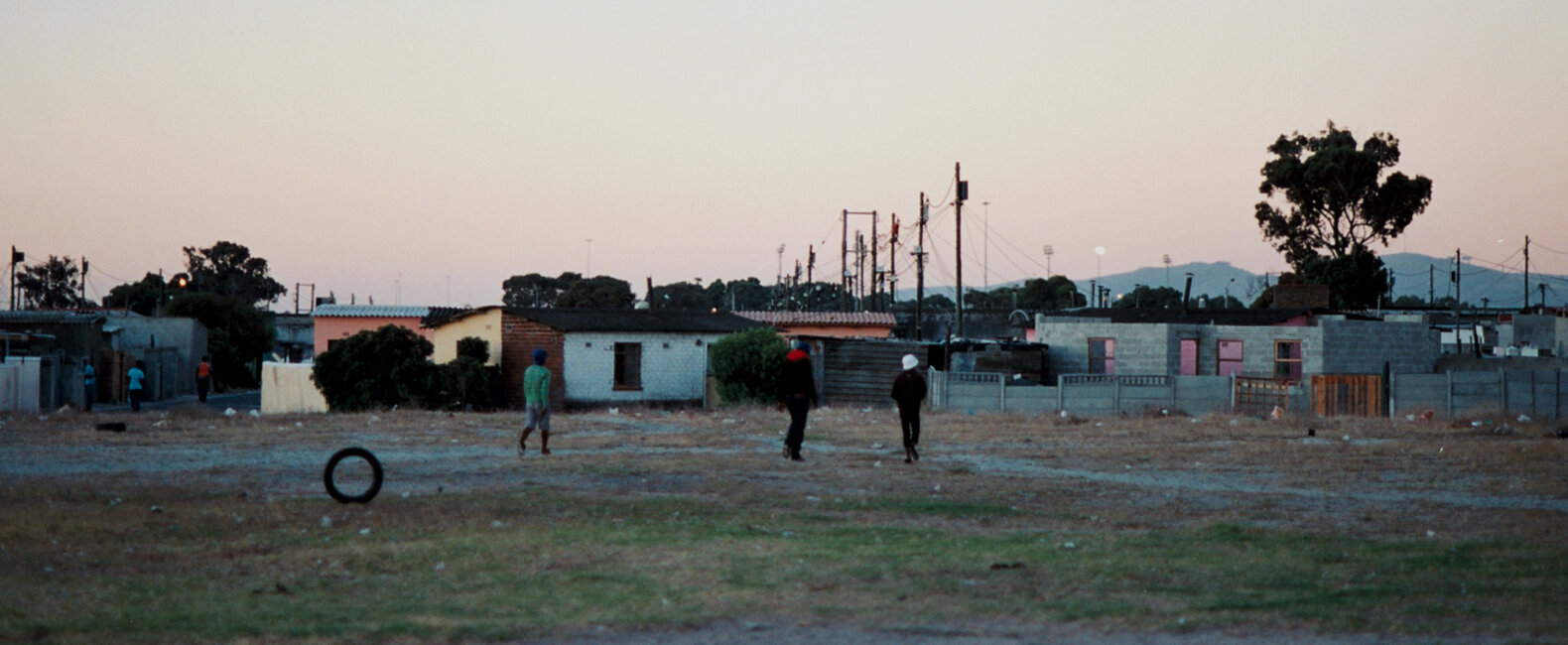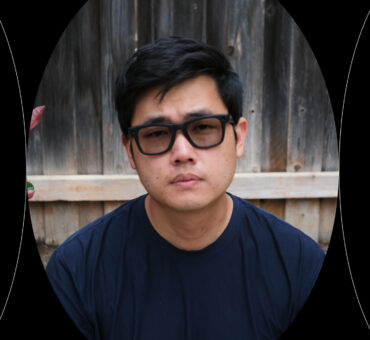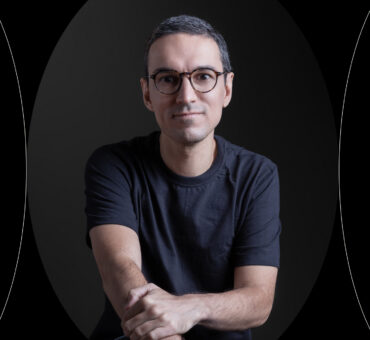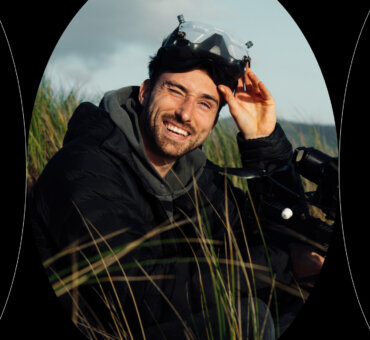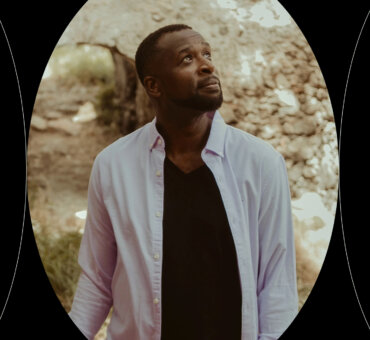Reinaldo Marcus Green was a lot of things before he was a filmmaker. Promising athlete, master’s level educator, family man. He worked on Wall Street before, during, and after the 2008 financial collapse. And only then did he decide to study film at NYU under the guidance of legends like Spike Lee and Todd Solondz. So you could say Reinaldo has seen some things. But, more importantly, he has something to say about it.
Reinaldo’s latest short film, Stop, is a deceptively simple story about a black teenager getting stopped by NYC police officers while on his way home from baseball practice, and then continuing on with his day. The film’s power is in its restraint. Its understatement is its statement. Stop demands our attention not with indignation, but with subtlety ⎯ the mark of a truly great film. And while it was shot in just two days, on a borrowed camera, with a volunteer cast and crew for a budget of just $500, it has gone on to Sundance, Tribeca, BFI, among some 40 other prestigious film festivals. It is currently being adapted into a feature film.
The stakes are high in Reinaldo’s work. More than its entertainment value or even social value, Reinaldo believes in film’s ability to create a better world. Film is a chance to change our minds and our circumstances. “Film,” Reinaldo told us, “is a chance to change our fate.”
Reinaldo Marcus Green: For the longest time, I was trying to figure out what to do with my life. I got a master’s in education and I thought I wanted to teach. And I still do. But teaching did not lead me from one thing to the other. I got an opportunity to work on Wall Street for a while, at AIG. I had a huge undergraduate loan at the time, so I thought, Why not pay it off in 5 years instead of 20? But after the financial crisis hit, there was a big shake-up at AIG. I ended up finding another job in product development, but it wasn’t a good fit. That’s when I started looking for an exit.
My brother, Rashaad Ernesto Green, was becoming a filmmaker at the time, and I was helping him from afar, supporting him, going to the set on weekends. He even put me in a couple of his films as an actor. One of them went to Sundance, which was sort of amazing. I started thinking there might be a career there. So really, my entry point into film was my brother.
Musicbed: Did you help him on his feature?
He made Gun Hill Road in 2011, and that’s when I sunk my teeth into the filmmaking process. I helped him on the marketing side — just getting the film out there — and it ended up being the number one indie film the week it came out. After that, I decided to apply to film school at NYU so I could learn how to produce my brother’s films. That’s why I went. It was never to write or direct. I figured we’d be the Green Brothers. My brother would write and direct, I would produce, and that would be the end of it.
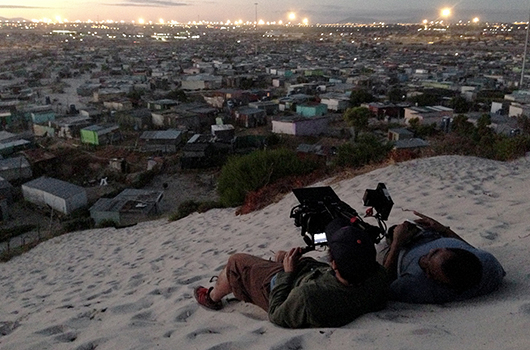
But the NYU film program is a writing program. So while I did learn how to produce — I produced over 20 shorts while I was there — I also had to write and direct my own films. The very first time I did it, I fell in love with the process. I fell in love with seeing a story I’d written up on the screen. And because I’d started out as a producer, I naturally approached writing and directing from a producer’s perspective: How can I use locations to my advantage? How can I make something look great with no budget? How can I work with very little means? And really, that’s how my short film Stone Cars came about.
The film ended up doing very well.
We hit the festival circuit, but it didn’t take off right away. It kept getting rejected in the last round at Sundance, Clermont-Ferrand, and Cannes. Cannes said they loved it, but there was no place for it. For whatever reason, I responded to their email and said, “Thank you so much. Are there any other festivals in the area that you would recommend?” I was immediately like, Why did I send that? But the next day, I got an email saying, “I know I told you yesterday that you’d been rejected, but a spot has opened up. I need to know tonight if you want the spot, because a press release is going out.” So I was like, “Yes.” And 30 minutes later — literally 30 minutes later — a release goes out saying Stone Cars is an official Cannes selection. So we got lucky. But part of that luck was my responding to that email. And it all happened after eight months of being on the festival circuit. We probably should have given up at that point, but we kept applying. Cannes opened the floodgates to more festivals, and the film ended up winning two Grand Jury prizes.
You were still at NYU at this point?
Yeah, I made Stone Cars during my second year. And then I made Stop during my third year. Stone Cars had done so well that I probably could have used it as a calling card to make a feature. But, to be honest, I didn’t feel ready. So instead of thinking about a feature, I spent the better half of my third year just practicing my craft. I made three short films, and Stop was one of them — the last one. All of the films were very short. I shot each of them in two days. They were directing exercises to a certain degree. They had no budget. Stop literally cost $500 to make.
It’s such a simple film, but very powerful. Did the idea evolve as you wrote it?
It was interesting. The original idea was a kid walking home, but it was all voiceover. It was going to be thoughts in his head as he walked down the street. But Todd Solondz, my teacher at NYU, was like, “No way. It should have a beginning, a middle, and an end. Cut the voiceover and give it a beginning, a middle, and an end.” So I was like, Okay, what are the beginning, the middle, and the end of this story? I decided that if the movie was about the stop, then I needed to figure out what was happening right before it, which would be the beginning, and what happened right afterward, which would be the end. It sounds simple, but that’s what it needed.
So I wrote that, and when I went back to class, Todd was like, “Yes, this is it.” And once I had Todd’s approval, I felt super confident moving forward. The script was very simple. Like six pages long. But it took me months to get there. I say it was a $500 movie; but in reality, it took me $50,000 of school to be able to make it. So I guess it was a $50,000 short.

The acting is great. Where did you find the lead?
Spike Lee teaches at NYU. So one day I went during his office hours to tell him about the movie. I said I was looking for a kid to play the lead and did he know anybody. He just turned around, didn’t say anything, and wrote a phone number on a piece of paper. I was like, Okay, I guess if Spike Lee gives me a number, I should call it. The guy he recommended had no acting experience, but he turned out to be perfect for the role.
I had him come over to my house to talk about the script and run through some lines. And while we’re talking, he nonchalantly tells me that the exact same thing that happens in the film had happened to him the week before. He was walking home and got stopped by the cops for no reason. It was so interesting the way he described it. It was just another day for him. It wasn’t even an issue. He wasn’t angry or upset. It was very strange and powerful to me. Because obviously, what’s happening is not okay.
So we cast the film and shot it in three hours one night, and two hours the next. We had no lights. We borrowed a friend’s camera. The most expensive thing was a lens we rented because my DP wanted to shoot anamorphic. All of the crew and actors were free. My wife cooked pasta for everyone. We ended up cutting it in one night because I needed to show it in a class the next day.
The final version isn’t far off from that first cut. Essentially we made the film for no money and no time. And the film exploded more than I ever would’ve thought, especially considering it was literally just an exercise. It got purchased out of Sundance, which was amazing. Then it played Tribeca, the Los Angeles Film Festival, BFI, London. It played about 40 festivals around the world. I felt like I had my finger on the pulse, but I never expected it to be this explosive. Now I’m working on expanding it into a feature.
Why do you think it’s important to approach this issue through narrative rather than documentary?
Narrative pulls you into the issue. It implicates you in the action. Narrative has the power to put you into situations, rather than just show you situations. So you’re forced to ask yourself, What would I do? If I were a cop in a dark alley, would I reach for my gun?

Maybe we’ve gotten so used to raw nonfiction ⎯ cell phone videos, social media, etc. ⎯ that fiction is the only thing left that can disarm us.
Yes. And the power of fiction is that it lets us change the narrative. We can let people experience the happy ending we’re not getting in real life. Let them see what that feels like for a change. That’s the power of narrative storytelling here. It lets us break this brutal cycle of violent death. Film is a chance to change our fate.
You said you made all of those shorts during your third year at NYU as an exercise. Did you learn anything?
By the end I really understood the power of less is more. Truly, it all comes down to the story. You have to write a good movie. You have to write a good script that people want to be a part of. I was able to get people to work for me not because of who I am, but because they cared about what I was trying to do. So it’s important to create work that matters to more people than just you.
Is there a connection between your desire to teach and your desire to make films?
There is a connection, but I don’t see films as “teaching opportunities.” Films like that are often boring. They can feel manipulative. If you’re shooting a documentary, that’s a different story. But that’s not what I’m trying to do here. This is more about starting a dialogue, which is a form of teaching. It’s more about getting that conversation going rather than telling you what’s right or wrong about something.
Are there good stories that aren’t worth telling?
Absolutely. I went through 15 ideas before I came up with Stop. You throw a bunch of stuff on the wall and see what sticks. That’s been the process for all of my films. I had four different feature ideas, and I actually wrote an entire script for one before I decided to scratch it. But the thing is, not everything you throw away truly gets thrown away. It goes into this scrap bin, and sometimes you go back into the scrap bin and take out little bits. Growing up, I remember we used to throw away chicken bones, and my dad would say, “There’s a whole meal left in those scraps.” Never look at the scraps as waste. You could pull one line out of the bin that makes the whole story.
What does it mean for something to “stick”?
Basically, it’s when you think something is really, really, really cool. It sounds simple, but that’s it. You start with the part of the project that you’re incredibly attracted to — like a kid to candy. Something that sounds fun. Then, after that, you can infuse some importance into it, find the deeper cultural resonance. But for me, it has to start with something catchy. And that comes across to the audience. We didn’t grow up watching independent films. We grew up going to the AMC. If you want to speak to a bigger audience, you have to start working at that level. You have to create work with artistic integrity that your mom would want to go see at the AMC. And that’s a different game. That’s the major leagues.64 Shares































































